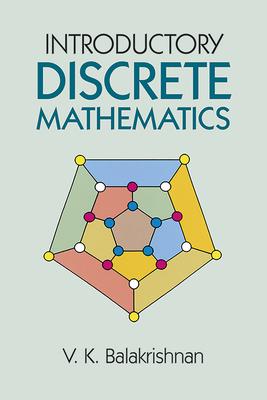
Chapters 0-3 cover fundamental operations involving sets and the principle of mathematical induction, and standard combinatorial topics: basic counting principles, permutations, combinations, the inclusion-exclusion principle, generating functions, recurrence relations, and an introduction to the analysis of algorithms. Applications are emphasized wherever possible and more than 200 exercises at the ends of these chapters help students test their grasp of the material.
Chapters 4 and 5 survey graphs and digraphs, including their connectedness properties, applications of graph coloring, and more, with stress on applications to coding and other related problems. Two important problems in network optimization ― the minimal spanning tree problem and the shortest distance problem ― are covered in the last two chapters. A very brief nontechnical exposition of the theory of computational complexity and NP-completeness is outlined in the appendix.
Chapters 0-3 cover fundamental operations involving sets and the principle of mathematical induction, and standard combinatorial topics: basic counting principles, permutations, combinations, the inclusion-exclusion principle, generating functions, recurrence relations, and an introduction to the analysis of algorithms. Applications are emphasized wherever possible and more than 200 exercises at the ends of these chapters help students test their grasp of the material.
Chapters 4 and 5 survey graphs and digraphs, including their connectedness properties, applications of graph coloring, and more, with stress on applications to coding and other related problems. Two important problems in network optimization ― the minimal spanning tree problem and the shortest distance problem ― are covered in the last two chapters. A very brief nontechnical exposition of the theory of computational complexity and NP-completeness is outlined in the appendix.
Paperback
$20.00